11 reasons you have the puppy blues and what to do about it
Experiencing the dreaded puppy blues? An expert shares simple tips to help make that first year with your dog a little easier
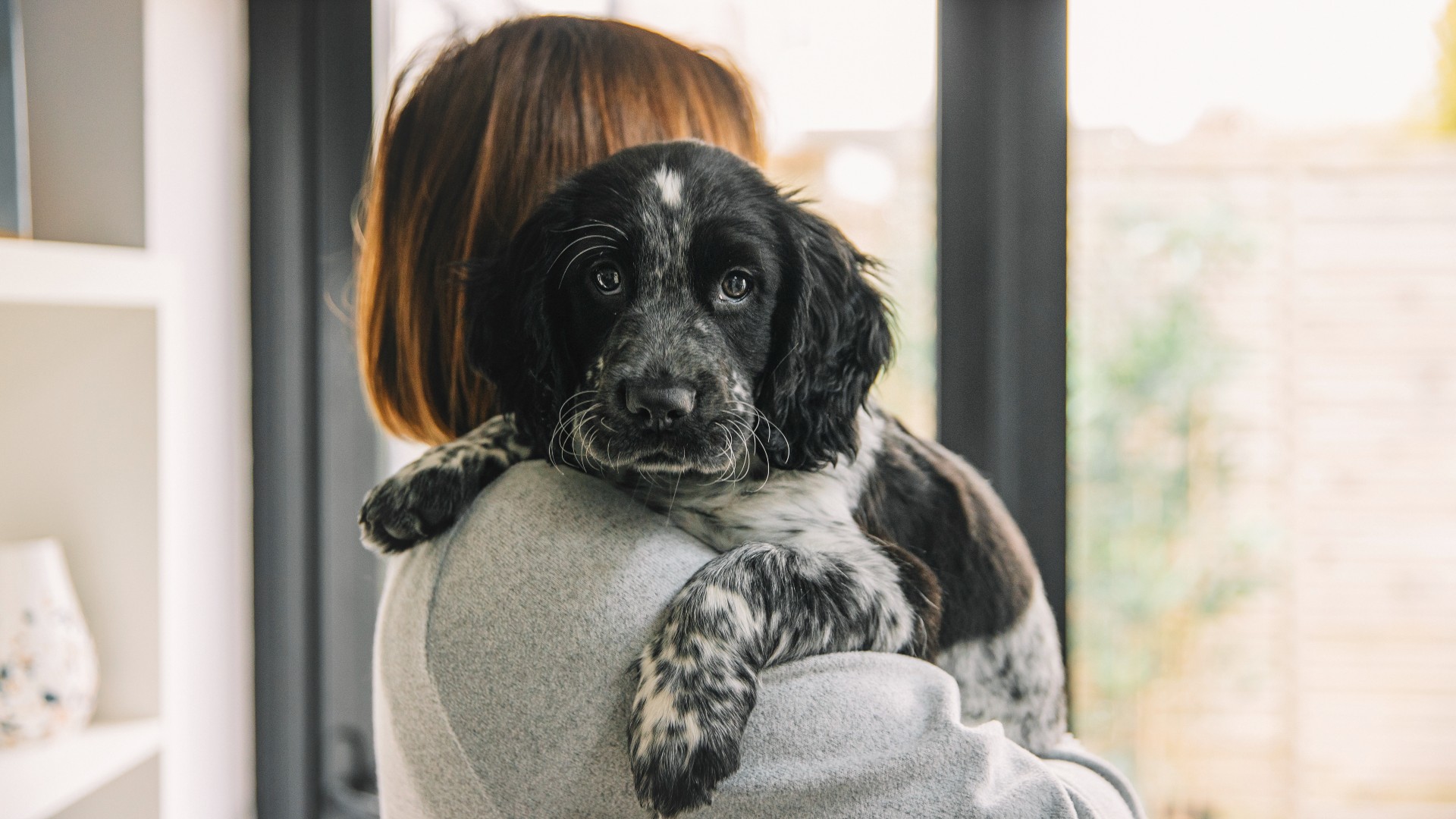
If you’re currently experiencing the puppy blues and it’s caught you completely off guard, rest assured, you’re not alone. Most of us grow up hearing the message that owning a canine companion can lower stress levels, reduce feelings of anxiety and depression, and infuse our days with fun and joy. But what if the opposite happens?
While you may have spent a lot of time researching the best puppy food to stock up on and which toys are likely to be the biggest hit with your new fur friend, chances are that you may not have given anywhere near as much thought to your own physical and mental health and the ways welcoming a new puppy into your home might affect these in a detrimental way.
There’s no denying that puppies can bring us a great deal of happiness, but it’s not all rainy afternoons spent cuddling on the couch or sunny days frolicking together in the park. A lot of being a puppy parent involves disrupted sleep, changes to your daily routine, cleaning up accidents while you’re potty training, and dealing with the pain of hearing your puppy whine or bark when you leave the house without them.
The puppy blues can hit us hard and it’s important you know that there’s nothing wrong with you if you’re experiencing them. To help support you during this time, we’ve outlined some of the main reasons you may be experiencing the puppy blues and spoke to trainer and behaviorist Amelia Steele to get her thoughts on some simple things you can do to help make this first year a little easier.
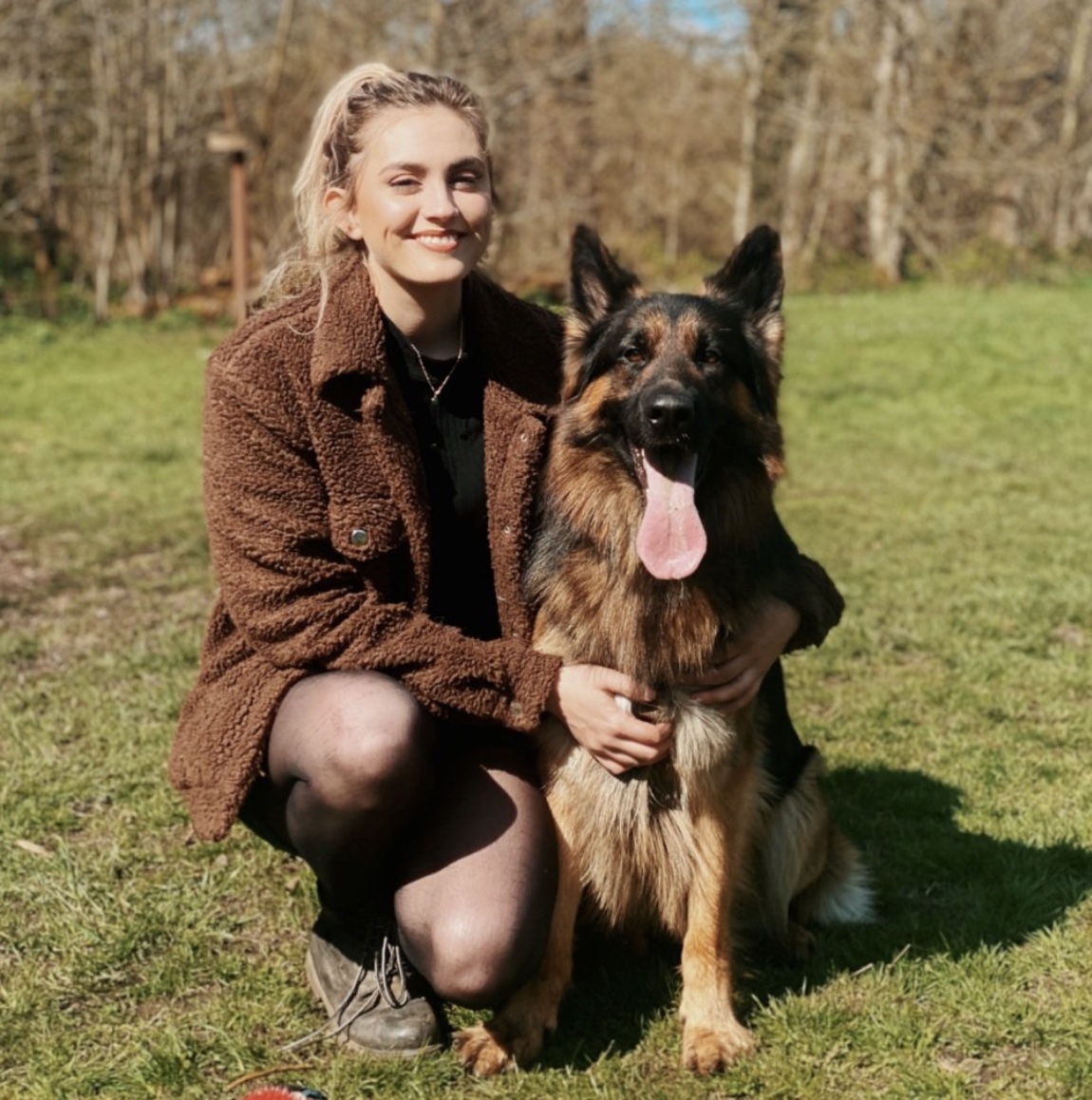
A VSA (Victoria Stilwell Academy) Certified Professional Dog Trainer & Behavioral Specialist, Amelia Steele offers training to help people to understand and work with their dogs, regardless of the issues they’re experiencing. She specializes in addressing and preventing behavioral issues such as aggression, separation anxiety, resource guarding, and reactivity and has plenty of experience teaching common skills such as loose lead walking, recall, house training, and obedience.
1. Feeling like you can’t leave your puppy alone
While separation anxiety in dogs is quite common, it can be incredibly challenging to deal with. It’s especially problematic for new pet parents who often feel guilty about leaving their little one alone. Grieving your freedom and the spontaneity you once had to go away for the weekend or meet friends is incredibly normal and can present as irritation, frustration, or feeling trapped in your own home.
“Get a separation plan in place as early as possible to make sure you can comfortably leave your puppy at home for short bursts of time,” Steele advises. “It can also be helpful to hire a puppy sitter or get friends and family to watch the puppy so you can get out and have some time for yourself.”
2. Destructive behavior
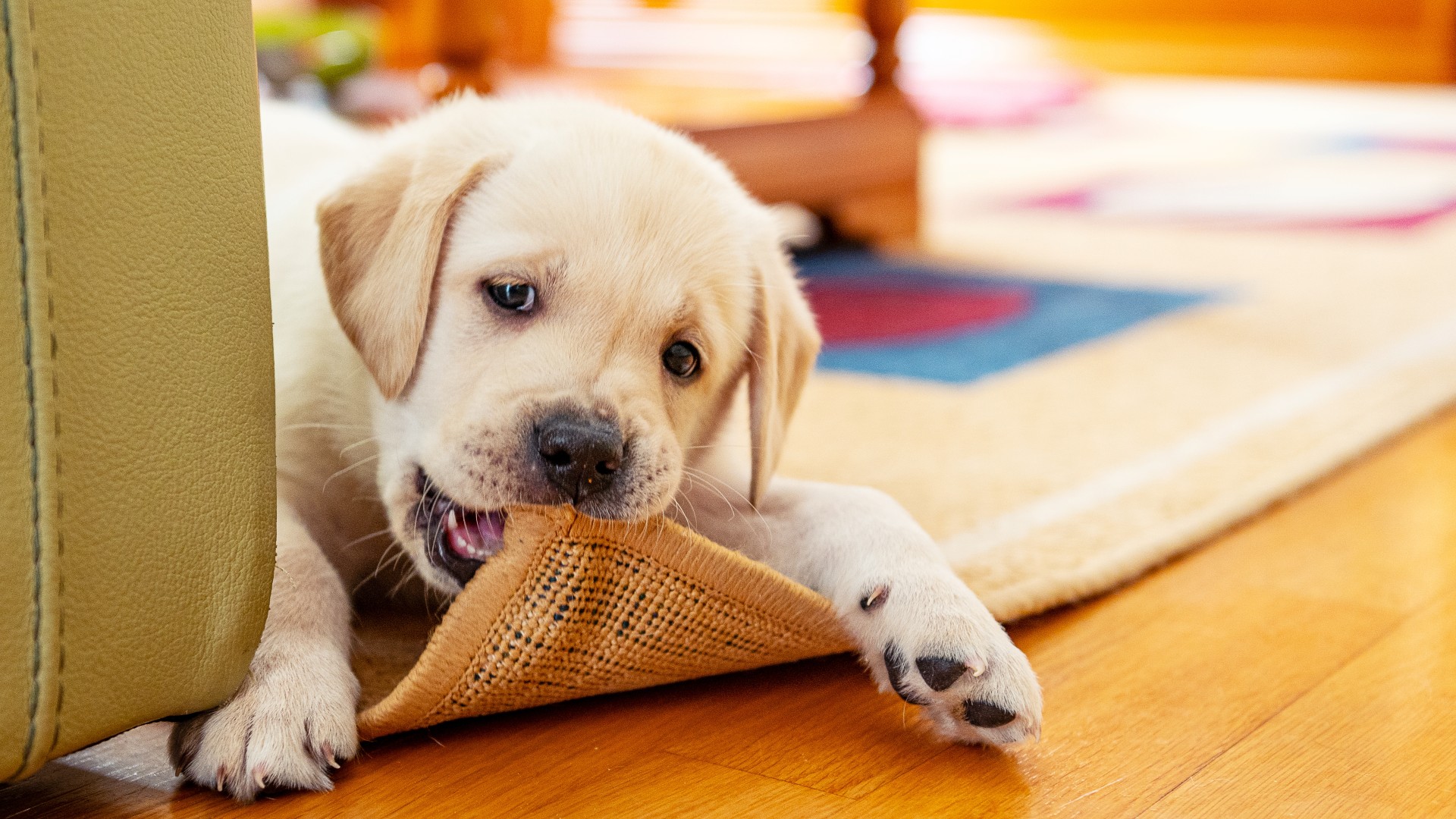
Puppies explore the world with their mouths, which means you’re likely to find your dog is chewing the carpet and other things that they shouldn’t – including furniture, shoes, and clothing. In the first six months of your puppy’s life, frequent and obsessive chewing is usually a sign of teething, which can cause their mouth and gums to become inflamed. The best teething toys for puppies can help relieve pain and discomfort as well as providing a more appropriate outlet for all that chewing.
Get the best advice, tips and top tech for your beloved Pets
Steele agrees and says it’s important to manage your puppy’s environment carefully. “Puppies explore the world with their mouth, so they should not be given free roam. Prepare a puppy-proofed playpen, crate, or room, with plenty of chewy things for your puppy and always supervise them when they are out and about.” Simple additions such as a baby gate can help provide puppy-safe areas for your dog.
3. Lack of sleep
Let’s be honest – while our puppies can bring us a lot of joy, they also have the potential to disturb both the quantity and the quality of our sleep. You may be waking up several times a night to take them to the toilet or to comfort them and when you are able to get some shut-eye, you may find it’s not as deep as it would usually be.
Steele says a strong routine is essential for helping both you and your fur friend and ensuring that your puppy can sleep through the night. “Make sure your puppy is getting a good balance of stimulation and rest throughout the day. Puppies should be sleeping for roughly 20 hours a day and when they are not getting that, it can result in restlessness and an inability to settle at night.
It can be tempting to want to keep them awake in the evening, but a better thing to do is to have a calming routine to help them settle before bedtime. Regardless of this, there will always be times when you’ll have to wake up at night, so having a rota for members of the family can help. There’s also nothing wrong with having an afternoon nap if needed!!”
If you’re finding it hard to get your little one off to sleep, check out the best puppy sleep aids.
4. Issues with toilet training
Even if you know how to potty train a puppy, it can still be a tricky process – particularly if you’re house proud and start noticing that your carpets and floors are being damaged by frequent accidents.
“Don’t put pressure on yourself to get everything right,” says Steele. “It’s normal for puppies to have accidents and as long as you have a solid plan in place for toilet training, you will get there. It’s easy to compare yourself to others or feel like you’ve failed, but every dog trains on a different timescale, so don’t stress if it’s not happening as fast as you’d like.”
5. They won’t stop barking
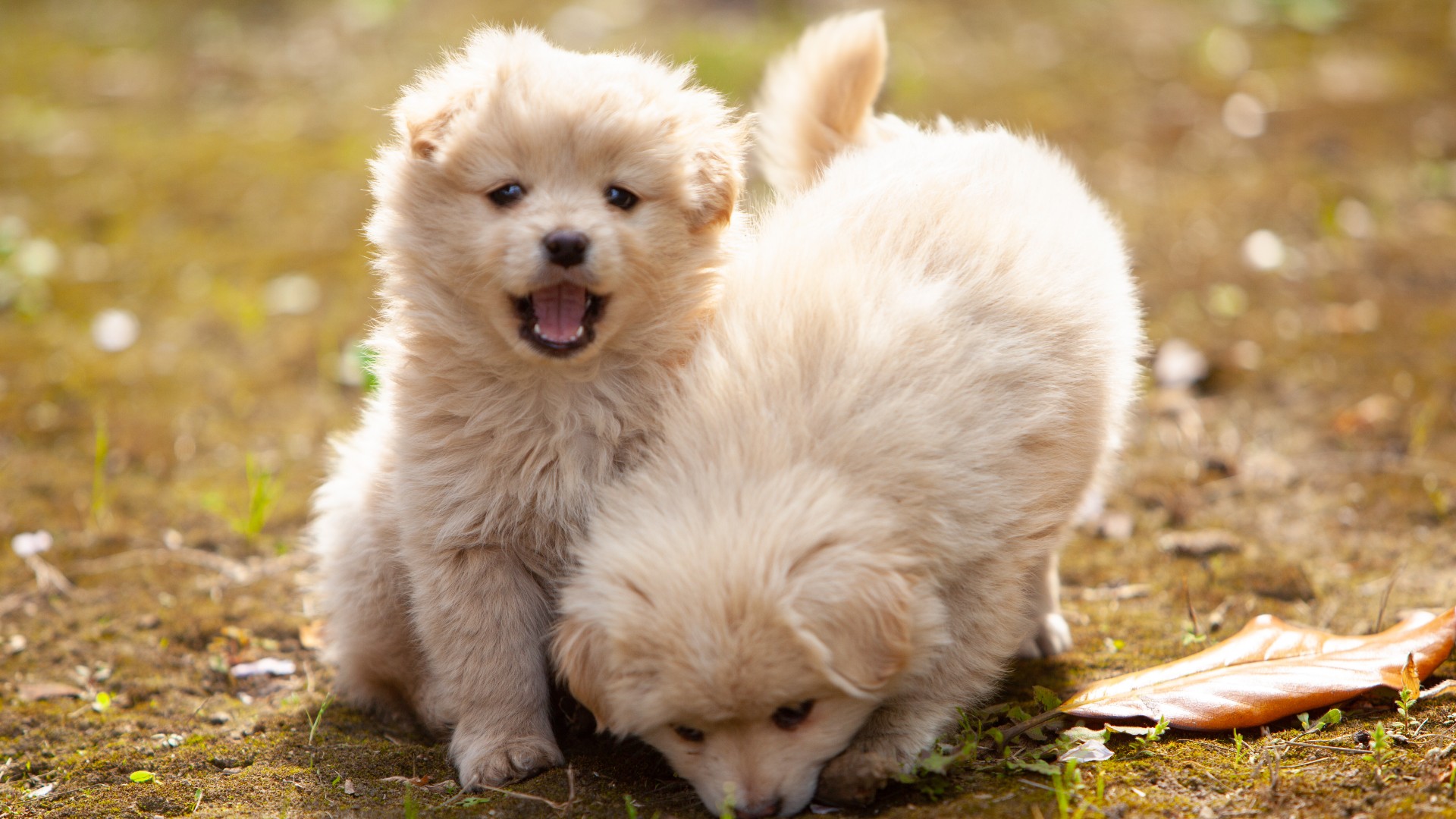
Barking is your puppy’s way of communicating with you and while it’s a perfectly normal part of that stage of their development, it can become problematic if their barking becomes excessive. From boredom and attention-seeking to separation distress and over-excitement, there are lots of potential reasons why your puppy might be barking.
To put an end to barking, Steele says it’s important that you make sure your puppy’s needs are being met. “It’s easy to feel like barking is a negative behavior and this can cause a relationship breakdown between you and your puppy. I always recommend trying to understand your puppy. When you feel like you are helping your puppy and are working WITH your puppy instead of against them, it makes everything a lot easier.”
6. Resource guarding
Resource guarding in dogs is a behavior that occurs when a dog becomes protective over something that it considers belongs to them. This could be food, a favorite toy, or a particular place that they like to sleep, such as their bed or the couch. If you try to get close to this item, your puppy will likely growl or bark as a way to try to warn you off.
“Resource guarding can be prevented by making your puppy feel secure with food,” explains Steele. “It’s always best to leave your puppy be when they are eating and avoid taking food away or messing with their food. If you are approaching your dog when they are eating or chewing something, it should always be to add something e.g. walking over and dropping chicken to them.”
7. Changes to your daily routine
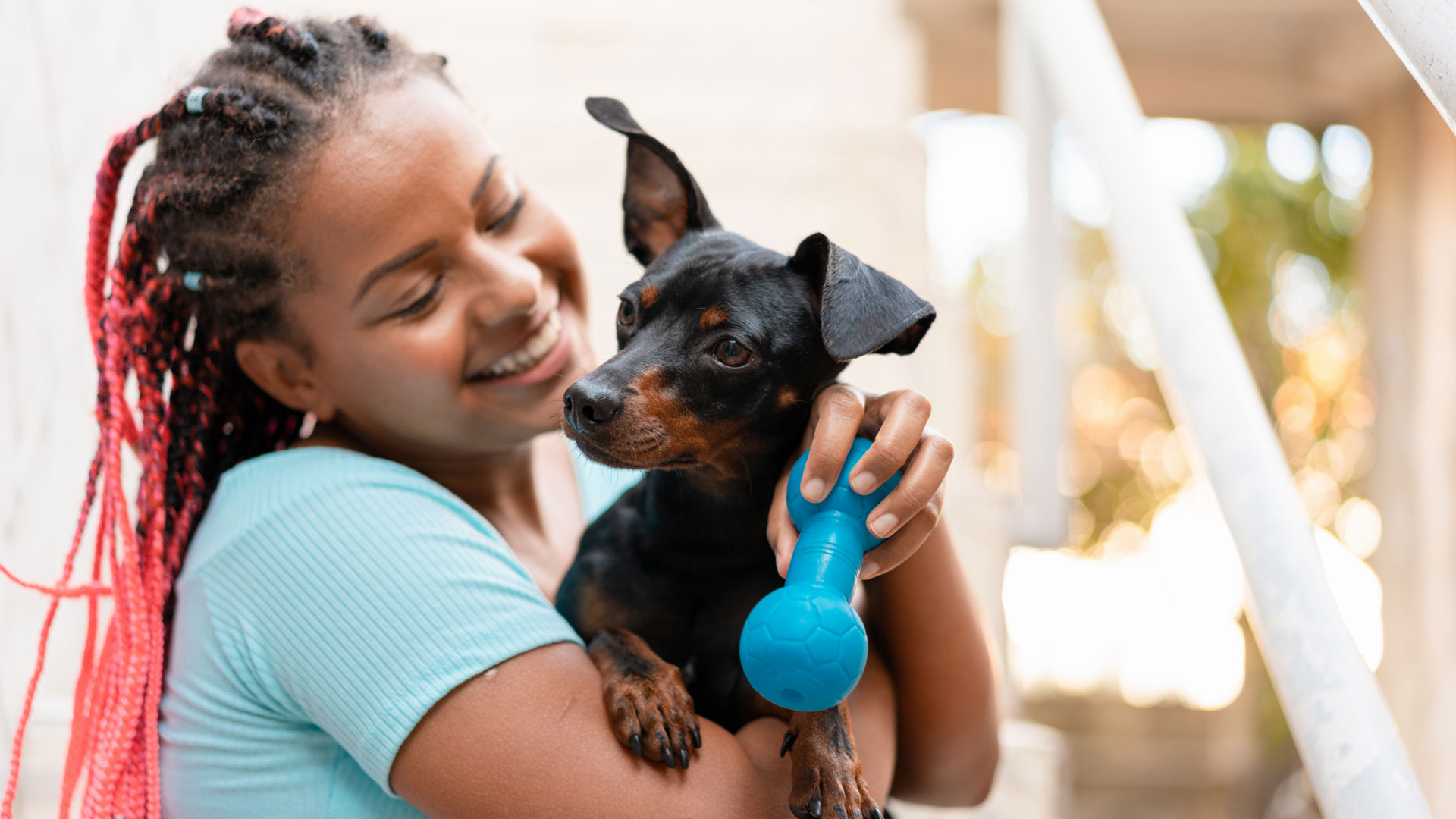
In addition to your regular schedule, being a puppy parent also means having to factor a lot of extra things into your daily routine. That includes walks, vet visits, meals, training, playtime, and potty breaks – all of which can trigger feelings of stress and anxiety as you work to adjust to your new normal.
However, Steele recommends that you set your own schedule first and don’t try to be too rigid in order to accommodate your fur friend. “Puppies are super adaptable, so it’s absolutely fine to fit their schedule around your own. I find it helps to keep routines flexible so that your puppy doesn’t get stressed if you deviate from their schedule.”
8. Unmet expectations
When you first thought about getting a puppy, what sprung to mind? Perhaps you envisioned all the fun things the two of you would do together or pictured quiet nights curled up on the couch enjoying cuddles with your fur friend. While these things may certainly be forming a part of your new reality, you may also be feeling sad that the expectations you had haven’t quite come to fruition in the way that you’d hoped.
“Try to avoid comparing yourself to people online or even friends and family who have dogs,” Steele says. “People tend to only share the positives, so it can leave you feeling like you’re doing something wrong, however, it’s really important to understand that raising a puppy is tough and everyone will experience the biting, chewing, sleepless nights, accidents in the house, they just won’t always tell you.”
9. Increased demands on your attention
Even if you have children and are used to frequent demands on your attention, you may still find yourself unprepared for just how much of your time your puppy will need in those early days of integrating into your family. Not only will your dog likely want to spend a great deal of time with you, even when they’re happily playing on their own, you still need to keep an eye on them to make sure they don’t get into things they shouldn’t.
Steele says it’s important to remember to take some time every day to do something you enjoy. “Puppyhood can feel all-consuming, but it’s just as important to look after your own mental health. Even if it’s something as simple as giving your puppy a lick mat while you watch your favorite TV show.”
10. Concerns about your puppy’s health and wellbeing
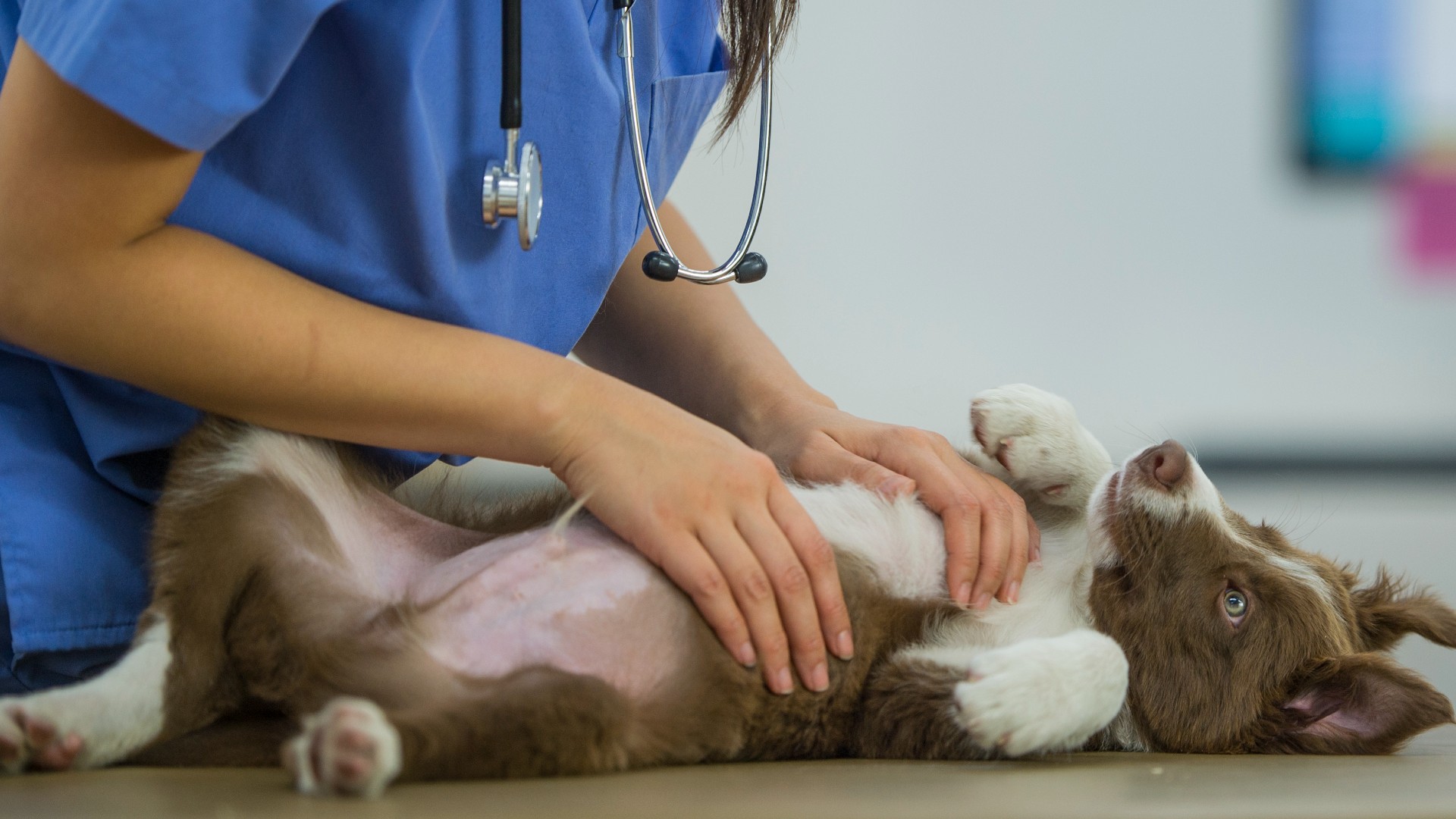
Whether it’s making sure you get all those puppy shots on time or you’re not sure your puppy is eating enough, if you’re anything like most pet parents, you’re likely spending a lot of time worrying about your pup’s physical health. On top of that, you may have concerns about your puppy’s mental health and whether they’re getting the stimulation and enrichment they need to thrive.
“It’s easy to spend your time worrying, especially if you’re a first-time dog owner,” Steele says. “I remember when I brought my German Shepherd home and I spent half my life on the phone to the vets. It can be useful to have a good relationship with a vet or qualified trainer that you can speak to when you’re worried, but ultimately you have to trust in yourself. It can also help to maintain a relationship with your puppy’s breeder or rescue group, as they are often great support systems. Whatever you do, don't Google medical things, this can often leave you feeling more confused!”
11. Feeling like you can’t bond with your puppy
Believe it or not, feeling like you’re not bonding with the newest member of your family is both incredibly common and super normal. While some people might immediately feel close to their little fur friend, for others, that bonding and attachment process can take time as you both learn how to build a relationship with each other.
“Often we expect a puppy to come home and have an instant bond with us, however, this isn’t the case most of the time,” Steele explains. “Remember that your puppy has been through a stressful time, leaving their mother & litter and having their whole life turned upside down. Relationships build over time so don’t put pressure on yourself to bond instantly with your puppy. It can help to focus on “low-pressure” exercises where there is no expectation for training or achieving a goal. Simple things like playing with your puppy or grabbing some of their food to play training games can be great for relationship building.”
Remember, it will take time to build a deep relationship with your new fur friend and there are going to be moments that feel challenging and not at all how you pictured life with your canine companion to be. That's ok! Be gentle with yourself, focus on 'good enough' puppy parenting as opposed to striving for perfection, and make sure to create space to nurture your own health and wellbeing.
For more helpful tips to help you navigate the first year of your puppy's life, be sure to check out our guide to bringing home a puppy for the first time.

Kathryn is a freelance writer who has been a member of the PetsRadar family since it launched in 2020. Highly experienced in her field, she's driven by a desire to provide pet parents with accurate, timely, and informative content that enables them to provide their fur friends with everything they need to thrive.
Kathryn works closely with vets and trainers to ensure all articles offer the most up-to-date information across a range of pet-related fields, from insights into health and behavior issues to tips on products and training.
When she’s not busy crafting the perfect sentence for her features, buying guides and news pieces, she can be found hanging out with her family (which includes one super sassy cat and a kitten), drinking copious amounts of Jasmine tea and reading all the books.
She has written for a range of publications, including Fit&Well, Top Ten Reviews, LiveScience, Goodto, and Product Hunt.
